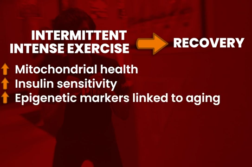CLEVELAND, OH (Ivanhoe Newswire) — Colorectal cancer is on the rise in younger people. It is the third leading cause of cancer-related death in both men and women. Now a new procedure is not only helping patients diagnosed with rectal cancer fight their battle with cancer, but it is also saving some patients from a permanent lifestyle change.
This young mother of three didn’t think much about her subtle symptoms.
Annie Schreiber said, “The symptoms I had were much like symptoms of a hemorrhoid or other really benign conditions.”
Schreiber was 36, with no family history of colorectal cancers. Even her doctors wanted to take a wait-and-see approach. But then Schreiber read an article of two people her age who had been diagnosed with stage four colorectal cancer and had died.
“That scared me. I have three kids and it’s not worth the gamble,” said Schreiber.
So, Schreiber scheduled a colonoscopy. Her diagnosis? Rectal cancer. Scott R. Steele, MD, MBA, Chairman of Colorectal Surgery at the Cleveland Clinic believed Schreiber would be a good candidate for the TaTME, which stands for transanal total mesorectal excision.
“What TaTME allows us to basically do is to take those toughest cancers, the cancers in patients who have those that are closest to the anus or big cancer and allows us to get them out and still reestablish the bowel continuity,” Dr. Steele said.
Which means that the patient will have an overall speedy recovery, lower risk of complications and will have no need for a permanent colostomy bag. For Schreiber, that option made a huge difference to her quality of life.
“It’s a real gift to have the opportunity to not have that permanent operation to your body,” Schreiber said.
Dr. Steele says the TaTME procedure can also be used for people who need proctectomies and those with pouches for inflammatory bowel disease, specifically those with ulcerative colitis.
Contributors to this news report include: Milvionne Chery, Field Producer; Hayley Hudson, Assistant Producer; Cyndy McGrath, Supervising Producer; Roque Correa, Editor.
To receive a free weekly e-mail on Medical Breakthroughs from Ivanhoe, sign up at: http://www.ivanhoe.com/ftk
MEDICAL BREAKTHROUGHS
RESEARCH SUMMARY
TOPIC: TATME FOR COLORECTAL CANCER
REPORT: MB #4521
BACKGROUND: Colorectal cancer is a term often used to refer to cancer inside the rectum and and cancer inside the colon. This is caused by development errors in the DNA of cells. If damaged, they will continue to divide even when they don’t need to, and as a result, it creates a tumor. Some symptoms include a change in bowel habits, blood or mucus in stool, abdominal pain, painful bowel movements or weakness or fatigue. Some risk factors include older age, a low vegetable diet, personal history or polyps, diabetes, obesity and smoking. To prevent rectal cancer, doctors recommend getting a colonoscopy around age 50, or earlier, if there is family history of the cancer.
(Source: https://www.mayoclinic.org/diseases-conditions/rectal-cancer/symptoms-causes/syc-20352884)
DIAGNOSING: If doctors suspect cancer, there are other tests that can be taken in order to diagnose the cancer. There are blood tests such as complete blood count or chemistry panel, or doctors could take an ultrasound or biopsy. From there, the next steps are to stage the cancer. Doctors look at the tumor itself, the lymph nodes and metastasis. The doctor will also grade the cells inside the body to see how healthy they are with a 0 being the best. From all of this, the cancer can be staged form 0 to 4C with each stage having sublevels for a better understanding.
(Source: https://www.cancer.net/cancer-types/colorectal-cancer/stages https://www.cancer.net/cancer-types/colorectal-cancer/diagnosis)
NEW TECHNOLOGY: There are many treatment options such as radiation therapy, chemotherapy or surgery, but now, there is TaTME, Transanal Total Mesorectal Excision. This procedure removes the rectum and all of its lymph nodes. Dr. Scott Steele said the main reason that this was developed was in order for patients not to have to live with a colostomy bag permanently. “What TaTME allows us to basically do is to take those toughest cancers, the cancers in patients who have those that are closest to the anus or big cancers and allows us to get them out and still reestablish the bowel continuity so that they don’t have to have a permanent bag.” TaTME helps doctors with the most difficult part of the surgery, and it gives patients a quicker recovery and fewer medications.
(Source: https://www.cancer.net/cancer-types/colorectal-cancer/treatment-options https://www.pelicancancer.org/our-research/bowel-cancer-research/tatme/
FOR MORE INFORMATION ON THIS REPORT, PLEASE CONTACT:
Caroline Auger, PR
216-636-5874
If this story or any other Ivanhoe story has impacted your life or prompted you or someone you know to seek or change treatments, please let us know by contacting Marjorie Bekaert Thomas at mthomas@ivanhoe.com




